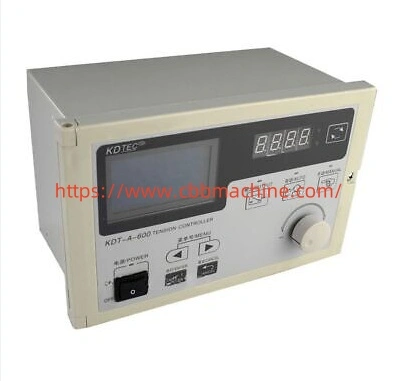
3 minutes, 17 seconds
-24 Views 0 Comments 0 Likes 0 Reviews

In every precision-driven production line, the role of a Tension Controller in balancing material flow is crucial for ensuring stable and efficient manufacturing processes. This technology is designed to regulate the force exerted on moving materials such as paper, foil, or film as they pass through rollers. By controlling the stress placed on these substrates, production facilities can prevent common issues like stretching, wrinkling, or tearing, which often result in wasted material and costly downtime.
What makes these devices indispensable is their ability to adapt to multiple production environments. Whether used in packaging, printing, or textile processing, their function remains the same: maintaining consistency. This consistency translates into fewer defects and higher product quality, which is vital when industries are competing in increasingly demanding markets.
Modern solutions also incorporate digital advancements. Instead of relying solely on manual adjustments, operators now benefit from electronic displays, sensors, and feedback systems that allow real-time changes during operation. This precision ensures better alignment of materials, reduced waste, and faster correction of anomalies when compared to older systems.
Durability plays another central role. Built with industrial-grade components, these systems can withstand continuous operation under demanding conditions. Features like sealed enclosures, reinforced bearings, and heat-resistant parts enable reliable performance even in environments where dust, vibration, and temperature fluctuations are common.
Safety measures further strengthen their value. Mechanisms that automatically disengage under overload conditions protect both the operator and the machinery. This prevents not only material damage but also ensures that production downtime is minimized when unexpected challenges arise.
Flexibility is equally important. Many solutions can be easily integrated into existing production lines, allowing manufacturers to upgrade performance without replacing entire systems. The modular approach simplifies installation and makes scaling operations more straightforward.
Perhaps most significantly, compatibility with automation platforms allows these devices to become part of smarter factories. When linked to centralized control systems, they contribute to predictive maintenance, data collection, and process optimization. This ensures that manufacturers stay ahead of production challenges while also moving toward more sustainable operations through reduced waste and energy efficiency.
In conclusion, while often overlooked in discussions about industrial technology, these systems form a backbone of consistent, high-quality output in roll-to-roll production. By combining precision, adaptability, durability, and safety, they empower industries to maintain efficiency, reliability, and cost savings in every run.
For more insights, visit https://www.cbbmachine.com/news/industry-news/tension-controller-types-importance-applications-and-more.html

Share this page with your family and friends.